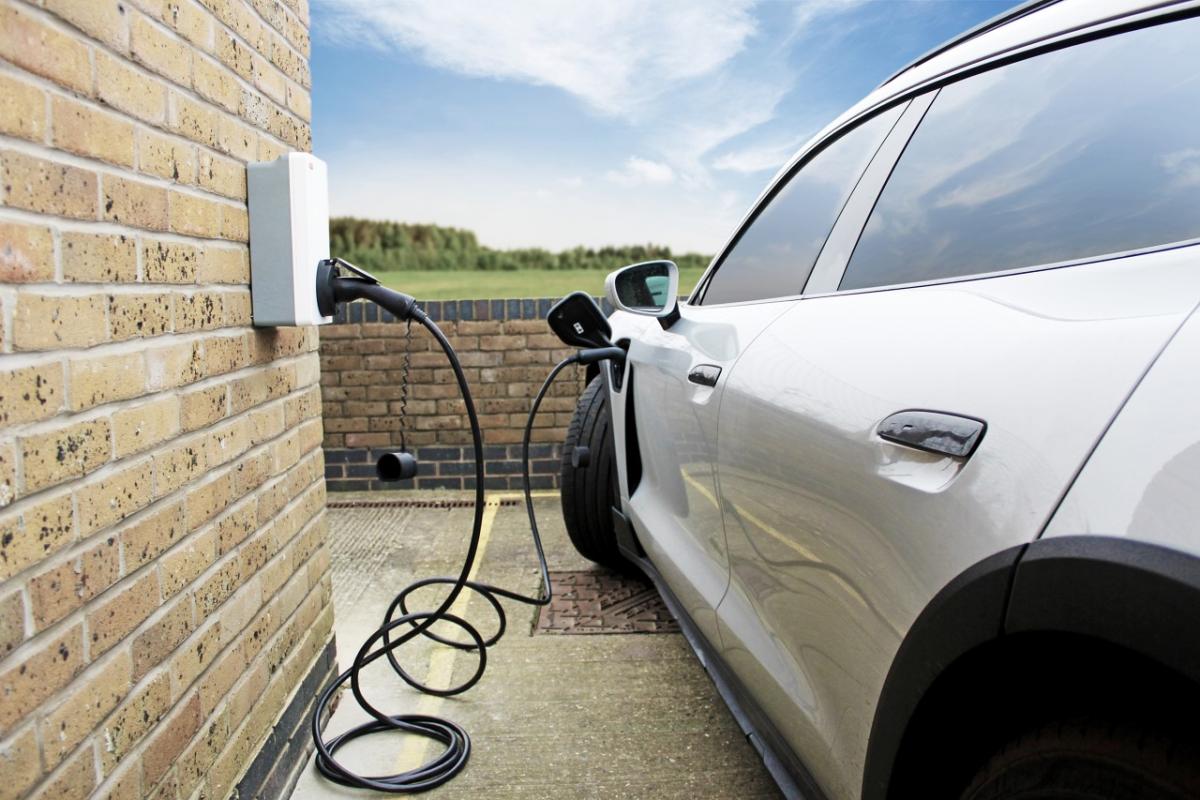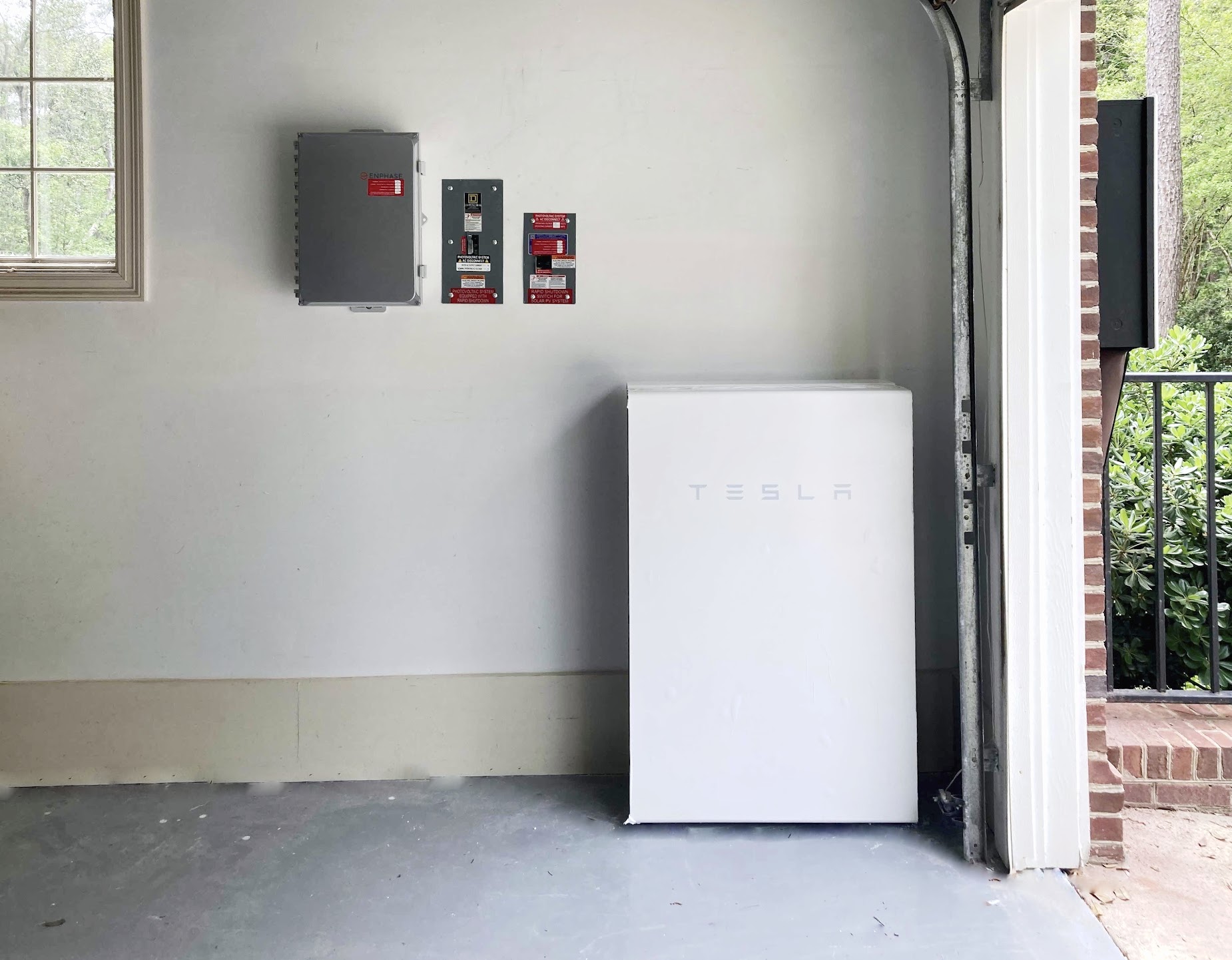Charging an EV with solar energy is an efficient, cheap, and convenient way to power a car. Wondering if you need solar panels to charge an EV? Read our blog to learn what the benefits are and how you can start!
Why Should You Go Solar When Buying an Electric Vehicle?
When buying an electric vehicle, saving the planet does not have to come at the expense of increased electricity bills. As most electric vehicle owners do most of their charging at home or work, going solar is the perfect solution to keep your transportation costs and carbon emissions low after buying an EV.
In this article, we will look at how to charge an EV with solar panels, the main benefits of doing so, and things to remember when going solar as a current or future electric vehicle owner.
Can I charge my electric car with solar panels?
Yes, although it may seem like a concept from the distant future, using solar panels to charge electric cars is a technology that is very much available today. With a home solar energy system and a level one or level two charging station, EV owners can power their electric vehicles with the renewable energy generated onsite by a set of solar panels.
Whenever the sun is shining, and a vehicle is plugged into a home, it is possible to charge EV directly from solar power. At night and on cloudy days, EV owners can also tap into a battery storage reserve to keep their vehicles charged with emission-free solar power.
Is charging an EV with solar energy cost-efficient?
Yes, solar EV charging is very cost-efficient when compared to traditional, grid-supplied electricity. As solar power systems are already designed to lower the energy costs of a property, high-consumption devices such as electric vehicles can benefit even more from the long-term savings PV panels provide.
By installing solar panels for electric cars, EV owners can keep their grid energy consumption levels low. Critically, this can prevent some homeowners from entering higher-tiered electricity rates often imposed on properties with large amounts of usage.
Top 3 Benefits of Charging an Electric Car with Solar Panels
Although solar panels can be a bit of an undertaking and occasionally expensive to install, combining a PV installation with electric vehicle ownership has many long-term and short-term benefits. While you may be concerned about solar panel leaking, roof damage, or fire hazards, we can assure you that safety is rarely an issue when you go solar with a reputable company.
Cost Efficiency
To promote both green energy and electrification, there are many federal, state, and local tax incentives, rebates, and programs designed to make both solar energy and EV charging stations more affordable. Notably, the Inflation Reduction Act of 2022 earmarked $370 billion for energy and climate initiatives, making it the most significant investment of its kind in US history.
Today, eligible American home and business owners can take advantage of these incentives to reduce solar and EV ownership costs. When compared to rising gas and utility prices, going solar today can potentially lock in the rate you pay for electricity for years to come.
Emission-Free Fuel
Besides cost advantages, people worldwide are adopting solar energy as an emission-free alternative to fossil fuels. By powering a car with solar energy, you can keep your EV as green as possible with absolutely no carbon emissions from the fueling or driving processes.
After installing even a single solar panel for charging an electric car, you can automatically reduce the fossil fuel consumption on your property. While some utilities diversify their energy portfolios, the more solar power you produce at home will contribute to a better overall carbon footprint for your property and vehicle.
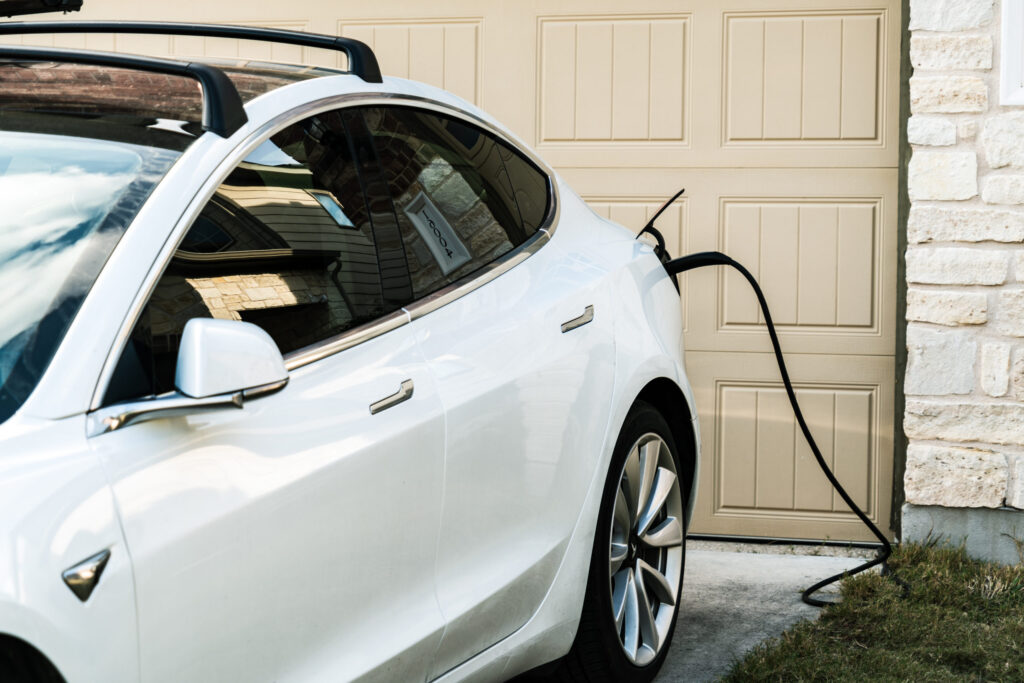
More Control Over Your Power
Ultimately, from a perspective of both costs and carbon emissions, charging your vehicle with solar energy gives you more financial and environmental control over how you choose to power your EV. By producing and using your own green energy, you are no longer at the whim of fuel stations or electric utilities to determine the costs and sources of your power.
For even more control over your power, you can choose to add a solar battery, such as the Tesla Home Powerwall, to increase self-consumption and decrease utility dependence. When drawing power from a battery, EV owners can utilize cost-free solar energy at night or during a local electrical outage.
If you want to:
👉 ensure you’re getting the best and latest technology,
👉 feel comforted, educated, and safe
👉 deal with a local company that is always available for all your future needs
PPM is the right choice for you, as we were for over 1,000 other Florida residents who chose our team to install their solar arrays.
Click the link below to schedule your FREE consultation with one of our solar specialists today!
GET MY FREE QUOTE IN ONE DAY
How much energy does it take to charge an electric vehicle?
Electric vehicle charging capacities vary heavily depending on the make and model of a car and the size of its battery. As more and more energy is being required to charge today’s high-powered EVs, here is a look at the battery capacity for some of today’s most popular electric vehicles:
- Audi e-Tron – 95 kWh
- Tesla Model S – 100 kWh
- Tesla Model X – 60 to 100 kWh
- Tesla Model Y – 81 kWh
- Tesla Model 3 – 50 to 82 kWh
- Chevrolet Bolt – 60 kWh
- Nissan Leaf – 40 to 62 kWh
Of course, if you own a hybrid vehicle rather than a fully battery-powered car, a partially-electric engine will require much less energy to charge if it is also powered by gasoline. Comparatively, here are the battery capacities for a few of today’s top hybrid vehicles:
- Chevrolet Volt – 18.4 kWh
- Toyota Prius – 8.8 kWh
- Honda Accord Hybrid – 1.3 kWh
If you are looking for a Tesla Car Charging Station in Florida or a different charger to fuel your EV at home, it is typically not advised to perform an installation yourself. With high-powered charging stations, older homes may need an electric panel upgrade, which must be performed by a licensed electrician. For your safety, we recommend talking to a professional before making any dramatic changes to your property for solar or EV charging.
How many solar panels do you need to power an EV?
When determining how many solar panels to charge a car is necessary, it is important to remember that your total PV system capacity will likely cover the power demand of your vehicle and your home. While it is possible to set up a standalone solar-powered electric vehicle charging station, homeowners will likely benefit the most from a full-home system.
With this in mind, calculating the number of panels that a home solar EV charging station will require above and beyond the property’s ordinary usage is quite simple. For example, let’s say you own a Tesla Model 3, which has a battery capacity of 50 kWh. If you’d like to charge your Tesla from empty to full every day, you would need enough solar panels to produce 50 kWh of electricity daily.
To put this into perspective, Florida has approximately 4.25 peak hours of sunlight daily, and modern residential solar panels typically hover around 300W in capacity. With each module generating roughly 1.275 kWh daily (300W x 4.25 hours), this would mean that you need 39 solar panels (50 kWh / 1.275 kWh) to charge the battery from empty to full every single day. Thankfully, most EV owners do not use their entire battery reserve daily, and the actual number of solar panels you need to power an EV will be much lower, depending on your driving habits.
For small and large vehicle fleets, commercial solar power systems in Florida can be used to produce massive amounts of renewable electricity connected to one or more EV charging stations. With essentially no limit to the size of solar panel charging stations, the benefits of sun-powered vehicles can be achieved by homeowners, business owners, government entities, and more.
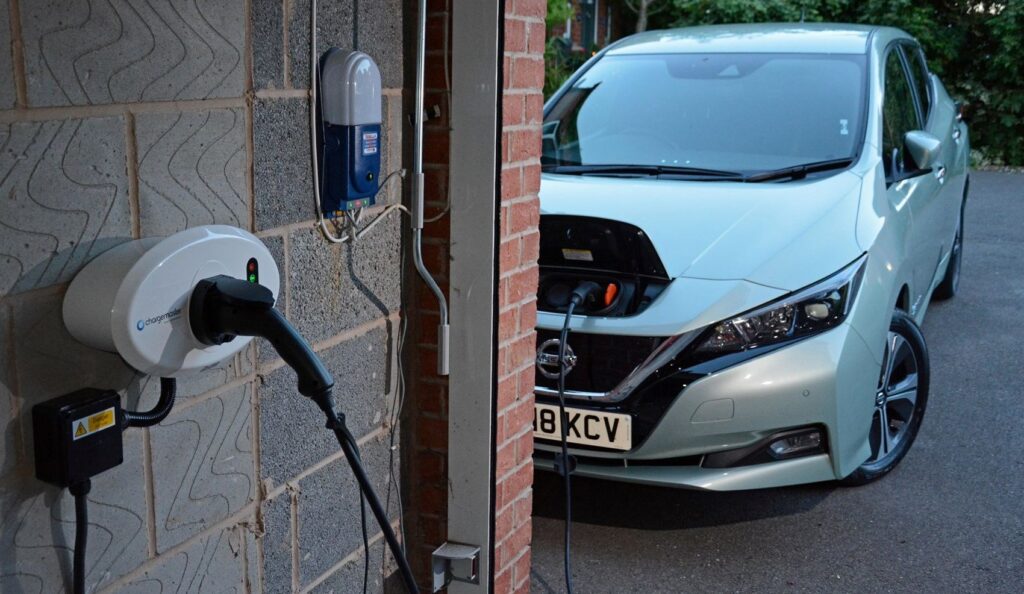
How much does it cost to charge EV with solar panels?
Once a transaction is complete, and you own your solar panels, then there are no costs to charge an EV with the power they produce. Whether you financed your PV system or bought it outright, your solar panels will begin to “pay for themselves” once they have produced enough electricity to cover the costs that would have otherwise been spent on utility energy.
When calculating the total cost of a solar panel for EV charging, the more energy you produce and use, the more likely you will save money in the long run. If you have a high-power demand vehicle such as a Tesla or Audi e-Tron, the costs to install a large solar panel system will be higher than a smaller installation, but the pay-back periods will be similar beyond overhead costs for permitting, labor, and other factors.
What to Know as an EV Owner Considering Solar Panels
Whether you just purchased your EV or are tired of paying higher electricity bills each month, there are a few important things to consider before you install solar panels. As EVs can dramatically increase the average electricity consumption on a property, you will want to ensure that your solar panel system will produce enough energy to cover both the demand of your home and vehicle.
Besides the extra consumption, EV owners going solar must also adhere to ordinary installation considerations such as roof constraints, available sunlight, and total project costs. In Florida, there is certainly no shortage of sunlight, but home and property owners should work with their installer to determine if their roof has enough available space to accommodate a full PV solar system.
To control your energy use and spending even further, EV owners should also consider batteries for home solar system installation. With a battery backup, you can continue to charge your car with solar panels in the event of a grid outage and also more easily navigate your fueling around higher-tiered electricity prices from the utility.
Buying an EV with Solar Panels Already Installed
In a reverse scenario, there are also a few things to consider when purchasing an electric vehicle as a solar energy system owner. To accommodate for the extra energy used at home, you may want to expand your array if possible. This is typically easier to do with module-level micro inverters rather than a string or central inverter system.
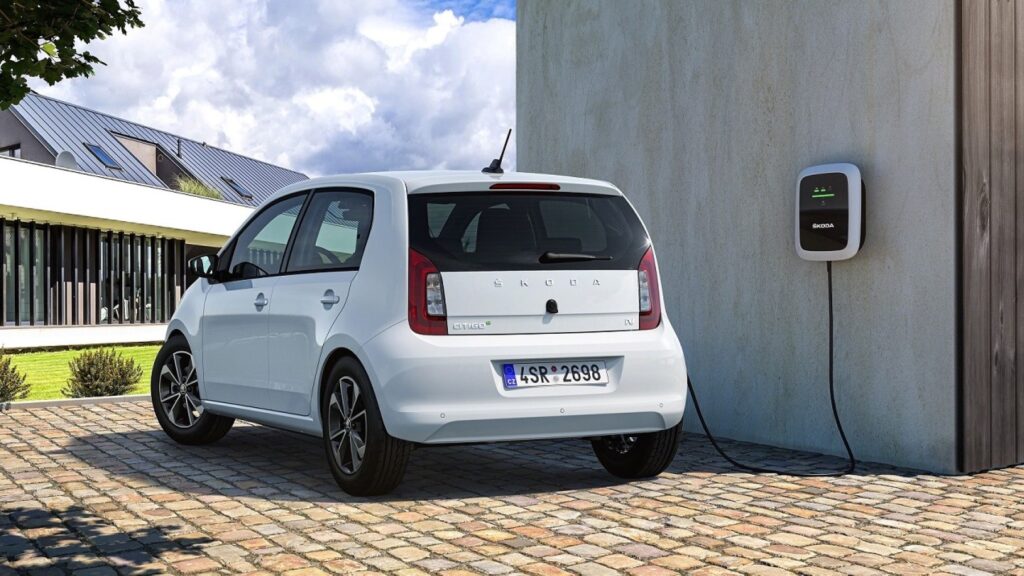
The Bottom Line
Simply put, solar panels and EV chargers go together like peanut butter and jelly, salt and pepper, or renewable energy and a sustainable future. By installing a PV system when you buy an electric vehicle, you can create your very own solar-powered EV charging station to keep your fuel costs low with free and infinite sunlight.
PPM Solar specializes in installing solar panels for home use in Florida alongside many of the additional pieces of equipment necessary to help you meet your energy goals, including backup batteries, EV charging stations, and commercial solar systems.
If you’re interested in a quote or simply want to learn more about saving the most on your energy expenses with solar and EV charging, please contact us today to get started.
